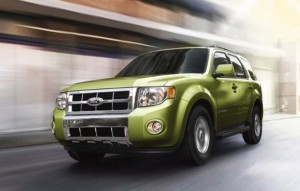
J.D. Power's 2014 Vehicle Dependability Study showed a drop in reliability and quality for 2011 vehicles.
It has become something of an industry gospel: automotive quality and reliability has long been on a steady, upward climb. But that conventional wisdom took a hit with the release of a new study showing an unexpected decline in vehicle dependability for the first time in more than 15 years.
The setback is largely the result of problems with engines and transmissions, according to J.D. Power’s 2014 Vehicle Dependability Study, particularly with the smaller 4-cylinder engines that have grown increasingly popular with motorists hoping to improve their mileage.
“Until this year, we have seen a continual improvement in vehicle dependability,” said David Sargent, vice president of global automotive at J.D. Power. “However, some of the changes that automakers implemented for the 2011 model year have led to a noticeable increase in problems reported.”
The new study found Lexus to have the overall highest dependability of any brand, followed by Mercedes-Benz, Cadillac, Acura and Buick. But General Motors vehicles topped more individual segments than those of any other manufacturer.
Now in its 25th year, the Vehicle Dependability Study, or VDS, has served as a chronicle of the generally steady improvement in automotive reliability – in this case, a measurement of the number of problems experienced by owners of 3-year-old vehicles. Last year, for example, the number of problems for every 100 vehicles – PP100 in Power-speak – declined sharply to an average of 126. The 2014 study, however, sees the problem count surge 6%, to 133 PP100.
That increase is almost entirely the result of engine and transmission problems which increased by six problems for every 100 vehicles. In fact, among vehicles equipped with 4-cylinder engines, the count rose by 10 PP100. Smaller engines, as well as the latest generation of diesels, have proved to be more trouble than older, larger gasoline engines.
“Automakers are continually looking for ways to improve fuel economy, which is a primary purchase motivator for many consumers, particularly those buying smaller vehicles,” said Sargent. “However, while striving to reduce fuel consumption, automakers must be careful not to compromise quality. Increases in such problems as engine hesitation, rough transmission shifts and lack of power indicate that this is a continuing challenge.”
The report serves as a warning that consumers might wind up saving money on fuel but increasing their service headaches – though repairs for the typical 3-year-old vehicle’s engine are likely covered by manufacturers’ warranties.
Power officials warn that engine problems can be a headache for manufacturers as well as consumers because owners tend to shy away from brands that have reliability issues. Separate research, the firm noted, indicates that 56% of owners will return to the same brand if they’ve had no problems with their vehicles. That slips to 42% for those experiencing poor reliability.
(As sales slow, automakers could be headed for an incentive war. For more, Click Here.)
The gap between top and bottom-ranked brands was “substantial” in the latest VDS, according to Power. That was especially true for Lexus, the luxury arm of Toyota Motor Co., which averaged just 68 PP100. Measured another way, less than seven of every 10 3-year-old Lexus models will experience any dependability issues.
Second-ranked Mercedes, by comparison, experienced an average 104 PP100, with Cadillac at 107, Acura 109 and Buick 112.
(Click Here for details about the recall of 1.9 million Toyota Prius hybrids.)
The Cadillac and Buick brands underscored the generally sharp improvement in both quality and reliability Power has been reporting for GM as a whole. The Detroit maker’s products led eight individual vehicle segments, including the Cadillac DTS sedan, the Chevrolet Camaro performance coupe and the Chevy Volt plug-in hybrid.
Even with Lexus, Toyota managed just seven segment awards, four of them going to Lexus models such as the ES, GS, LS and RX. Honda received six model-level awards, including the Acura RDX and Honda CR-V. Mini topped one segment with its little Cooper model.
(To see the three-wheel, 84-mpg Elio moving toward production, Click Here.)
The 2014 Vehicle Dependability Study was based on surveys of 41,000 owners of vehicles sold during the 2011 model-year.

A modern auto is damn complex and we can expect more problems as a result going forward with the 54.5 mpg CAFE mandate which can add a $5,000-$10,000 sticker price increase.